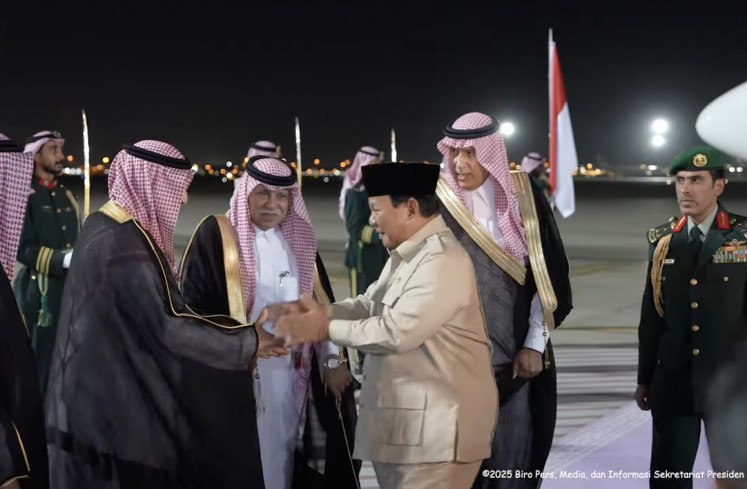Popular Reads
Top Results
Can't find what you're looking for?
View all search resultsPopular Reads
Top Results
Can't find what you're looking for?
View all search resultsGovt reviews fare-hike plan for economy class flights
In what could be good news for economy-class frequent flyers, the government is reassessing its plan to increase the base fare of tickets for economy class flights in the near future amid concerns over its impact on inflation
Change text size
Gift Premium Articles
to Anyone

I
n what could be good news for economy-class frequent flyers, the government is reassessing its plan to increase the base fare of tickets for economy class flights in the near future amid concerns over its impact on inflation.
It previously planned to increase the lowest fare allowed for economy class tickets, from 30 percent of its fare ceiling to 40 percent.
The new measure aims to end the price war among airlines and respond to their concerns on operational costs rising to above the revenue they collect with the current ticket prices.
While the new fare was initially set to be issued on Monday, Transportation Ministry director general for air transportation Agus Santoso said the government was further discussing plans with other stakeholders.
“We were still discussing how far it [the fare hike] would impact inflation,” he told The Jakarta Post on Thursday, refusing to elaborate on the deadline for the issuance of the new fare. “But everyone has agreed [on the regulation].”
Similarly, air transportation director Maria Kristi Endah Murni said that the regulation had yet to be issued because discussions were ongoing between the ministry and a team from the central bank. “Bank Indonesia had the formula to calculate inflation, so we needed to talk to them first,” she said.
Central Statistics Agency (BPS) data show that inflation in the transportation, communication and financial service sector stood at 4.71 percent year-on-year as of September, higher than that in education, recreation and sport at 3.17 percent.
She said the ministry would consider the pros and cons of the regulation revision and its potential effects on the public and the airlines industry.
Although the number of airline passengers has grown by double digits annually, carrier companies have jostled with big discounts in ticket fares for busy routes, which serve as the main battleground for airlines, to attract passengers.
At the same time, their operational costs have risen with the fuel-price increase from around 38 US cents per liter last year to almost 50 cents this year. The minimum price was last revised in 2016 to cushion the impact of rising fuel costs and the fluctuation in the rupiah.
Under the current regulation, the base fare is set at 30 percent of the fare ceiling for each route. For example, the base fare for a flight from Jakarta to Surabaya is Rp 412,000 ($30.48), 30 percent of the fare ceiling at Rp 1.37 million.
The new move comes after the Transportation Ministry suspended the operations of Kalstar Aviation, a small airline based in Pontianak, West Kalimantan, late last month for its failure to meet technical and financial standards.
The Indonesian National Air Carrier Association (INACA) has long called for an increase in the base fare of tickets, especially for busy routes, to help airlines make up for the high operational costs.
The busiest routes are those connecting Jakarta and Surabaya in East Java as well as Jakarta and Makassar in South Sulawesi.
INACA head of flight schedules Bayu Sutanto said the government needed to consider the sustainability of the airlines industry, not only the people’s purchasing power. “If airlines kept posting losses, they would have to close down their business,” he said.
Responding to this, Lion Air Group president director Edward Sirait said that Lion Air, the biggest low cost-carrier in the country, opposed the existence of the base fare cap.
“When airline companies set a fare, there needs to be consideration of the market situation, the [people’s] purchasing power and the conditions of the industry. These three factors can’t work if it [the fare] is capped,” he said.
He said that the current load factor in the Indonesian airlines industry “performed very poorly,” therefore, lowering economy-class ticket fares could ignite more demand.









